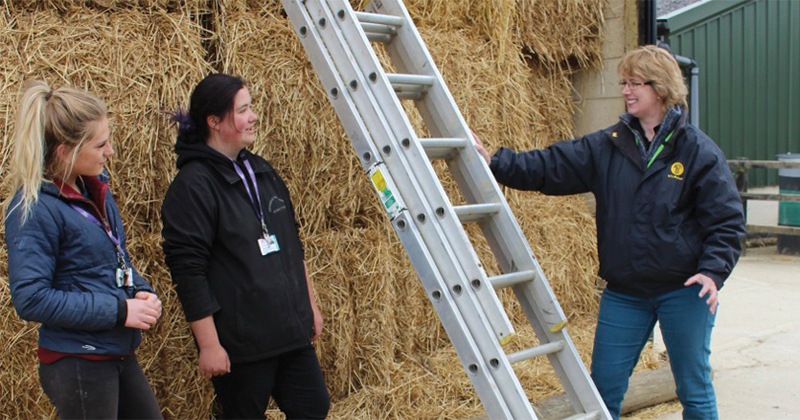When they were launched in July 2015, the area reviews were expected to result in a huge number of college mergers.
The former Department for Business, Innovation and Skills made it clear that the aim of this mass rethink of nationwide post-16 education and training was to create “fewer, larger and more resilient” colleges.
Early predictions from the then-FE commissioner Sir David Collins were that the number of colleges could drop by a third once the process was over, with up to 80 mergers taking place.
But by March this year the prognosis from his successor Richard Atkins was for “50-ish” mergers.
The aim of this mass rethink of post-16 education and training was to create fewer, larger and more resilient colleges
And published reports into the first three waves of the reviews, which involved 138 colleges and 70 sixth form colleges, revealed firm recommendations for just 37 mergers – a number that is likely to fall even further.
FE Week analysis has revealed that more than a quarter of these proposed mergers – 11 of the 37 – have either fallen through or changed since the reviews ended.
It’s not always clear why these unions aren’t working out, and in many cases, the colleges involved simply won’t say.
But when a college partnership falls apart, the weaker party is often left needing to find another merger partner just to secure its future.
This could be because of poor finances, a bad Ofsted rating or because the college is too small to survive in the longer term.
We’ve outlined the 11, and highlighted the party that could find itself in this position – as well as any further plans the college might have.
* Not all of these providers are struggling – but as we move into a world in which colleges will be allowed to go bust, there could be trouble ahead for any one of them.
Stockport College
Ofsted score: Grade 4
FE Commissioner: Administered status
Notice of concern: Financial health, inspection minimum standards
Revenue (2014/15): £22.8 million
A link-up involving Stockport, Oldham and Tameside colleges was one of two mergers to come out of the Greater Manchester review – but this was scrapped following intervention by the FE commissioner at grade four Stockport in December.
The college, which has been in administered status since 2013 and is in precarious financial health, is now planning to join forces with grade two
Trafford College, with a merger date set for December 31.
Transition principal Dr Mike Potter told FE Week that Trafford was its “preferred partner” for a number of reasons including location and “meeting the skills needs and specialisms” of the area.
South Staffordshire College
Ofsted score: Grade 3
FE Commissioner: No intervention
Notice of concern: None
Revenue (2014/15): £25 million
A merger between grade three South Staffordshire College and grade one Walsall College would mean the latter’s financial strength would “impact positively” on South Staffs, according to the Stoke-on-Trent and Staffordshire area review report.
But earlier this month, the college told FE Week the merger was off as the costs “outweighed the benefits to the learners and the wider communities we serve”.
It subsequently announced plans to close one its campuses, in Cannock, as a cost-saving measure. But when FE Week asked if it was planning to seek another merger partner the college declined to comment, citing “political sensitivities”.
Mid-Cheshire College
Ofsted score: Grade 4
FE Commissioner: Administered status
Notice of concern: Financial health, inspection, minimum standards
Revenue (2014/15): £12.7 million
The Cheshire and Warrington area review recommended a four-way merger that has since unravelled.
Grade two South Cheshire College and grade three West Cheshire College merged at the end of March.
But grade four Mid Cheshire College and grade three Warrington Collegiate opted to pair up separately – even though both have financial notices of concern, and the FE commissioner recommended last year that Mid Cheshire should “seek a merger with a strong partner while there is time to do so”.
We asked Mid Cheshire why it chose Warrington as a merger partner, but did not receive a response.
Bury College
Ofsted score: Grade 3
FE Commissioner: No intervention
Notice of concern: None
Revenue (2014/15): £33.4 million
Grade three-rated Bury College was set for an innovative merger with the University of Bolton and Bolton College, as recommended by the Greater Manchester area review.
But, as reported by FE Week, the college was recently dropped from those plans, with the sticking point being that it would not be able to merge on the terms originally agreed.
Principal Charlie Deane confirmed that the college – which recently lost the ‘outstanding’ Ofsted rating it held for nearly a decade – was still financially “very strong” and planning to “remain standalone for the foreseeable future”.
Hartlepool Sixth Form College
Ofsted score: Grade 2
SFC Commissioner: In intervention
Notice of concern: Financial
Revenue (2014/15): £5.9 million
A merger between grade two Hartlepool Sixth Form College and grade two Hartlepool College of FE was recommended through the Tees Valley area review. But in March the SFC announced it was planning to join forces with Sunderland College instead – but refused to say why its plans had changed.
At the same time, it was hit with a financial notice to improve from the ESFA, and was subsequently visited by the SFC commissioner.
His report deemed the SFC “unviable on a standalone basis” and he pressed for it to merge with Sunderland “as a matter of urgency”.
Lakes College West Cumbria
Ofsted score: Grade 3
FE Commissioner: No intervention
Notice of concern: None
Revenue (2014/15): £13.4 million
The Cumbria area review ended with a recommendation for grade two Carlisle College and grade three Lakes College to merge to create a “large, financially sustainable and resilient” institution that would “benefit from economies of scale”.
But Carlisle – which was handed a notice of concern from the ESFA in November – rejected this in favour of joining Newcastle-based NCG in April.
FE Week asked Lakes College if it was seeking another merger partner, or planning to go it alone, but it declined to comment.
However, at the time the proposed merger was called off, the college said it had “full confidence” it was “sustainable”.
Guildford College
Ofsted score: Grade 3
FE Commissioner: 2014 – out of intervention 2015
Notice of concern: Financial health, minimum standards
Revenue (2014/15): £35.3 million
Grade three Guildford College and grade one Farnborough College emerged from the area review process with plans to merge, after taking part in separate reviews.
The Surrey review report made it clear that remaining standalone “would not be in the best interests of students” at Guildford, which currently has notices of concern for both financial health and minimum standards.
Despite this, plans for the link-up have reportedly been put on hold. A spokesperson for the college told FE Week that the merger would be discussed at its corporation meeting this week.
Stanmore College
Ofsted score: Grade 2
FE Commissioner: Taken out of administered status April 2017
Notice of concern: None
Revenue (2014/15): £11 million
Previously troubled Stanmore College, which bounced back from a grade four to a grade two in 18 months, emerged from the west London area review with a recommendation to link up with three other nearby colleges – Harrow, Uxbridge and West Thames.
But the college turned this down in favour of a merger with grade one West Hertfordshire, which had been the college’s preferred option following an FE commissioner-led structure and prospects appraisal.
However, as reported by FE Week, this partnership was dropped just three months after it was announced. We asked if the college had any plans to seek a new merger partner, but did not get a response.
Waltham Forest College
Ofsted score: Grade 3
FE Commissioner: No intervention
Notice of concern: None
Revenue (2014/15): £21.3 million
FE Week reported in April that a planned link-up between grade two Barnet and Southgate College and grade three Waltham Forest College – recommended through the east and west London reviews – had been called off.
Penny Wycherley, Waltham Forest’s principal, told FE Week that the college was seeking a new partner.
She explained the college did not have to merge but “in the light of the area review process and long-term sustainability we believe we ought to”.
A call for expressions of interest had generated “quite a degree of interest” and she was confident the college would decide on a future partner in June.
Doncaster College
Ofsted score: Grade 2
FE Commissioner: No intervention
Notice of concern: None
Revenue (2014/15): £30.1 million
The Sheffield area review ended with a proposal for grade two Doncaster College to merge with grade one Barnsley College – but this was swiftly rejected by governors at Doncaster.
The college has since announced plans to join grade two North Lindsey College, having had “informal discussions” about a possible merger since last year, according to a college spokesperson. Among the benefits of the new merger was the ability to “establish a skills infrastructure that supports the economic connections across an east-west corridor from the Sheffield City region to the Humber”, she said.
West Thames College
Ofsted score: Grade 2
FE Commissioner: No intervention
Notice of concern: None
Revenue (2014/15): £22.5 million
A proposed merger between grade three Harrow College, grade one Uxbridge College and grade two West Thames College – as recommended through the West London area review – went out for consultation in October.
According to the consultation document the merged organisation would “provide a strong financial profile that ensures its sustainability and growth”.
But that three-way merger subsequently became a two-way, as West Thames dropped out of the proposal. It’s not clear why, or what its plans are now, as the college declined to comment when FE Week asked.


